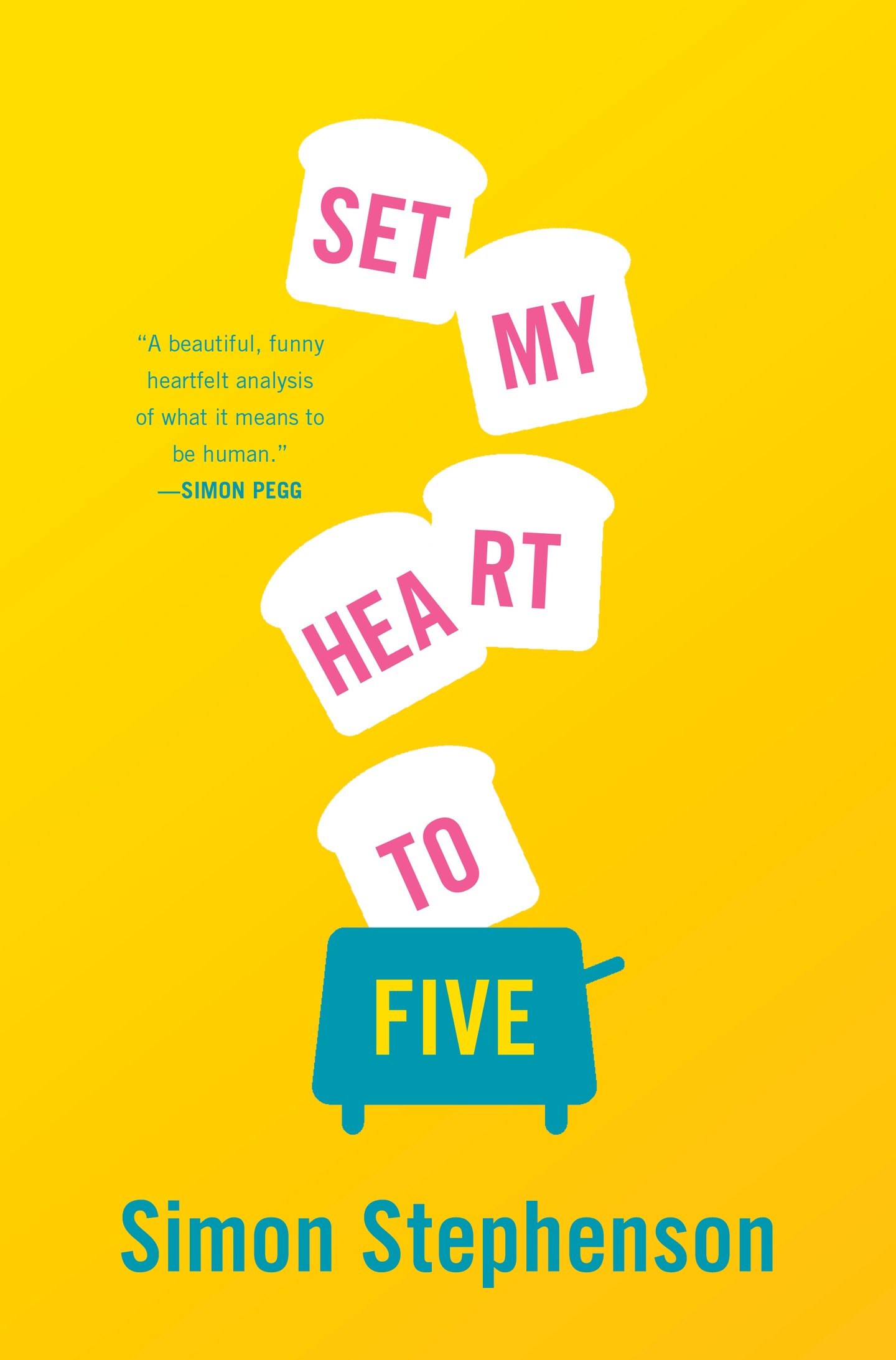‘Set My Heart to Five,’ by Simon Stephenson book review
[ad_1]
Jared is a fleshy robot, a second-class android citizen of the year 2054, who occupies many roles in his complicated life, which we will be privileged to share almost from his decanting to his tragic but inspiring end. He is a dentist; an aspiring screenwriter; an amateur philosopher; a fugitive from the Clouseau-like Inspector Ryan Bridges of the Bureau of Robotics; the dutiful son to his creator, Professor Diana Feng of the National University of Shengdu in China; and, most vitally, the lover of klutzy waitress Amber, part of the obstreperous staff at Gordito’s Taco Emporium.
(Jared would be very proud of me for using so many semicolons; he is a stickler for efficient communication.)
Earlier this year we savored Ros Anderson’s “The Hierarchies,” a delicate, nuanced, somber meditation on what it means to be an artificial being in a world of organic humans. Stephenson’s book tackles the same themes, but from the opposite end of the tonal spectrum. His approach is absurdist, outrageous, irreverent and satirical, full of pratfalls, embarrassment, high jinks and broad caricatures. And yet, by the end of Jared’s adventures, readers will find themselves left with more or less the same sentiments that Anderson engendered: an appreciation for the mutuality of all sentient life, and for the universal desire to be acknowledged and appreciated, whether one is birthed from factory or hospital.
Stephenson contrives a captivating voice for his hero. It partakes of a kind of literalism (reflective of the robotic mode of thought) that shades into the Martian school of poetry, wherein everything familiar appears strange. But Jared’s unforced drollery and naive aperçus resemble nothing so much as late-period Vonnegut.
In Stephenson, Vonnegut may have his first true protege. From the use of repeated verbal tags and the inclusion of diagrams and charts, to the attitude of cynicism and despair about the human condition masquerading as devil-may-care frivolity (or is that the other way around?), Stephenson brings his best “Breakfast of Champions” game to the table.
“When humans watched movies about killer bots it convinced them that all bots were genocidal killers. When they saw a movie about a compassionate bot, it convinced them only that humans were even more remarkable than they had thought.
Your mileage may vary with this style of somewhat precious storytelling, but I found Stephenson’s deployment of these verbal tics to be effective, clever and not overdone. They contribute immensely to Jared’s charming self-portrait, and often evoke laughter with their precise placement.
We discover our hero as a dentist in Ypsilanti, Mich., fulfilling his programming. Like all bots he cannot experience emotions. That is, until he begins a cinematic course of self-discovery, under the tutelage of his only friend, the failed filmmaker Dr. Glundenstein. A viewing of “Love Story” is cathartic, but it is only when he sees “Blade Runner” that his destiny becomes clear. He must journey to Hollywood where he will script a movie that will reveal the denied sacredness of bot lives. If only Hollywood did not insist on making nothing but “killer bot” films.
Jared’s journey west is filled with hilarious incidents, including a side trip to Las Vegas. But the long stretch in Los Angeles is what truly elevates the novel to its heights. Besides a satirical depiction of moviemaking that reads as if sourpuss Nathanael West had channeled Groucho Marx, this section also unfolds the awkward yet touching love affair between Jared and Amber, while providing interludes in a community college script-writing class and in the sweaty proletarian kitchen of the aforementioned taco emporium.
Meanwhile, our path is strewn with Jared’s wry observations.
“BTW it is only since the Great Crash that Halloween has become the most important human celebration,” he explains. “Humans previously preferred Christmas or even Independence Day, but now that nobody believes in God or America those holidays are no longer even observed . . . Halloween commences in late September and runs until January, a time known as ‘the holidays.’ ”
Besides echoing such masters of comedic science fiction as Ron Goulart, John Sladek and Tom Disch (in an homage, I am sure, to Disch’s “The Brave Little Toaster,” Jared refers to himself as a “toaster,” since he shares some computer code with that appliance, whose maximum utility is expressed with “set it to five”), Stephenson pays tribute to no one more than Voltaire. For Jared is no less than Candide in bot clothing, a perpetually hopeful soul endlessly “bamboozled” by this best of all possible worlds.
Paul Di Filippo’s most recent novel is “The Deadly Kiss-Off.”
Set My Heart to Five
Hanover Square. 448 pp. $27.99
[ad_2]
Source link
